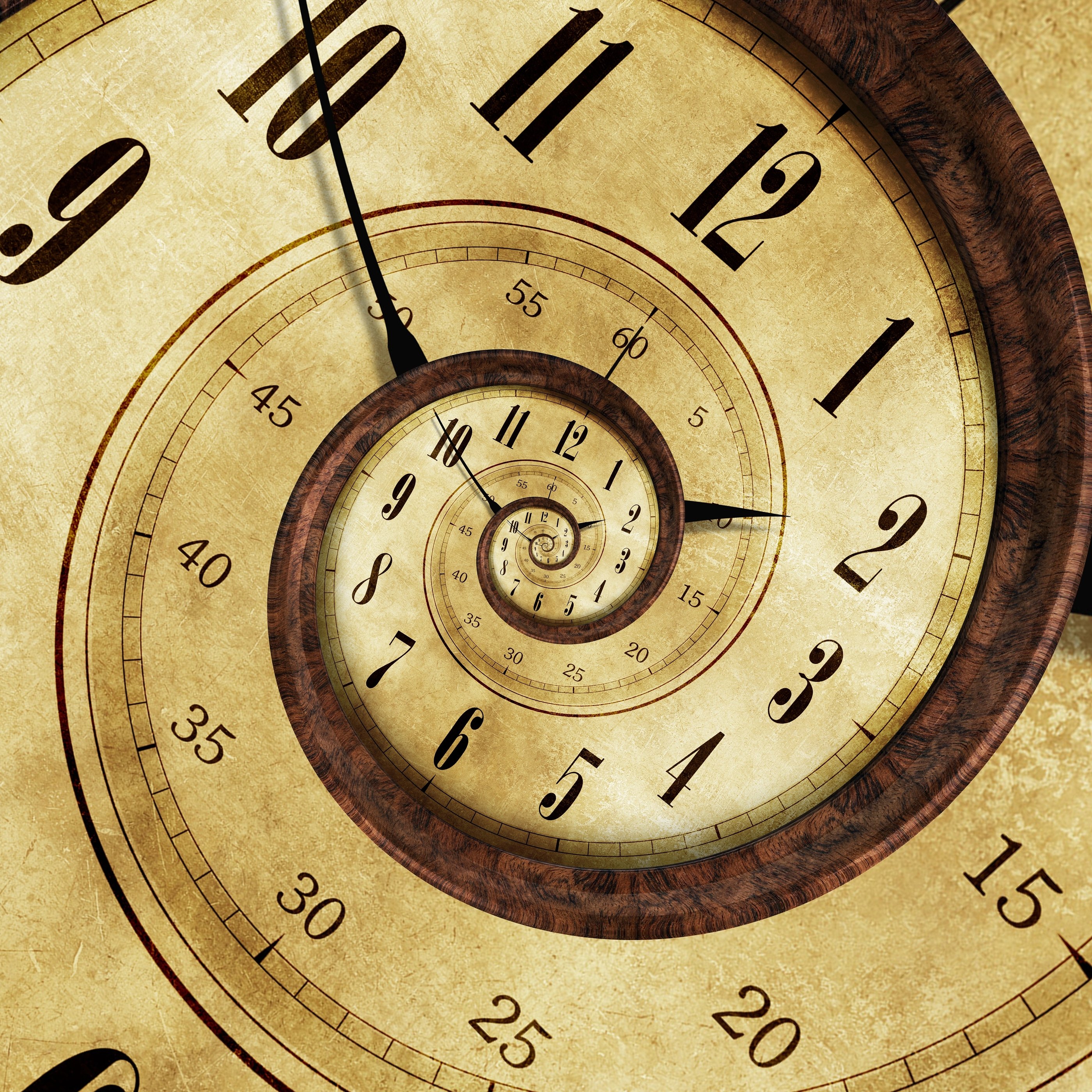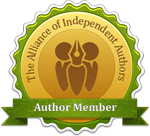Some days nothing we write seems good enough, other days, it’s as if the nine muses themselves have descended onto the page. After one of those magical writing days, we long for them all to be like that, to all be graced with exquisite inspiration and flow but every moment we dedicate to writing, no matter the result, is ever wasted.
Even though we know that not every writing day is wonderful, it still can lead to us being a little hard on ourselves when things go less than wonderfully but it’s actually the most natural thing in the world. Creativity by its very nature is cyclical. It ebbs and flows, much like our own fluctuating internal rhythms.
It’s crucial to remember these ebbs and flows of creativity, and to be kind to ourselves, especially when things are not moving as we would like. Everyone has off-days, especially creative souls. Embracing the interplay of creative yin and yang, and allowing yourself the grace to continue without self-criticism or judgement is key for you and your creative expression.
Much like the ocean is in a dynamic state of flux, so too are your own rhythms and internal energies. Honouring and respecting that while allowing yourself the grace and self-compassion to be gentle on yourself, kind to yourself — even through the the less than creative days — is essential for both wellbeing and prose.
Creative Waves
“The key to accepting the ebb and flow of writing time (and notice I say “accepting” and not “managing”), is to think of your creative time as energy that comes in waves,” says writing coach and author, Lauren Sapala.
“In order to use our time to its full potential, we need to become surfers of the waves. So, just like a surfer, you go out to the beach and you ride whatever waves are coming in that day. Some days the waves will be very big and thrilling, and some days the sea will be calm and flat and it will be hard to ride anything. Those days are not wasted. It’s just that the waves are in a different cycle.”
Going in Anyway [Just to Get Wet]
Just because it’s exhilarating to ride the waves, they can’t always be barrels and tubes. To continue the analogy, reeling waves that keep you surfing and out on the water all day may delight you to your core but just as you can only surf the waves that come to shore, you surf the sea as it is on any given day. Daily if you want to be good and it’s the same with your writing.
A surf term I used to hear when I lived in Bondi, Australia (of course), was going in “just to get wet,” which meant that the dedicated soul was so deeply in love with surfing the waves, that it didn’t matter one bit that she or he may only “catch a few,” OK, maybe a little bit but they were going in anyway no matter how many waves they caught.
Obviously chasing the bigger and better waves is thrilling but sometimes, like the ocean itself, you just need to go with the flow to get in the flow. “It is so fun when the waves are big and we can surf all day, but it’s not helpful to us to try to make every day into a “big wave” day,” says Lauren Sapala.
Show Up at the Shore
“Instead of trying to cling on to wanting the waves to be a certain way every day, or clinging to one wave with everything we have, it is much more helpful to concentrate on learning how to surf the energy waves of our lives. So, that means we accept the big waves and the little waves, and the crashes and the calm sea, knowing that we can’t force the waves and we can’t control the waves either.”
To paraphrase the late, great poet, Seamus Heaney, the ability to get started, keep going, and get started again is fundamental in art and life. “It’s most important that each day we continue to show up at the beach and accept the sea for what it is on that day, and give gratitude that we are here to experience it,” says Lauren Sapala.
“The ability to start out upon your own impulse is fundamental to the gift of keeping going upon your own terms. … Getting started, keeping going, getting started again – in art and in life, it seems to me this is the essential rhythm.” ~ Seamus Heaney
Low Expectations [and Word Counts]
Another beauty of the “I’m just gonna get wet” mantra which correlates with writing is that in setting your surfing expectations low, any upside is a happy consequence. There may just be a rogue wave storming its way to shore with perfect peak and you, like the plucky surfer you are, are there to catch it enjoy the ride all the more.
In the same way, low expectations and showing up regardless of how inspired you feel can work wonders for your creative output. If you vow to always write for 5 minutes a day or one hour a week, you’ll find it’s more likely that will extend of itself with you also entirely able to stick to it.
Whereas, loftier goals that only have you writing once a month but for a long stretch, are far less likely to deliver you the results you long for. Consistent writing, no matter how humble, trumps erratic writing, no matter how grand. “The beauty of aiming for a low output is when you arrive at your minimum, if you’re fascinated by what you are doing, you’ll keep going,” says Elizabeth Sims, author and contributing editor to Writer’s Digest magazine.
When you commit to something manageable, no matter how busy you may be, you will look forward to it as well as stick to it, which offers its own momentum. “If you miss a day or two, or a week or too, be at ease. Simply persist. Gather your writing materials at the next opportunity and pick-up where you left off — or try another direction. Write your minimum, and write it where you can, when you can. Without stress, without self-drama. Small pieces of writing add up quickly over time. Never mourn time.”
Turn Your Soul Around
“When we neglect the artist in ourselves, there is a kind of mourning that goes on under the surface of our busy lives,” says writer and poet, Pat Schneider. If the demands of a busy life are eclipsing your creative life or leaving you without any time to write, it’s vital to make a conscious shift.
When the late radical feminist theologian Mary Daley decided that enough was enough and her book writing needed to take centre stage, she came up with a mantra: “I have to turn my soul around.” This, she said, was the start of a whole new way of being in relation to her work, and, unsurprisingly, the only way she could complete her goal and write the book she longed to.
Equally, turning your own soul around in this way will lead your writing to become as natural as breathing. Through giving yourself the space, and grace, to write because it is your purpose, your writing will naturally improve of itself and with it, you enjoy the process too.
You and Writing
Just as you make time for those with whom you nurture, love and care for, your writing too is best considered in a similar way. “The beauty of a relationship is that you can orbit around each other for years, always learning new things about each other, always trying to understand each other,” says Sarah Selecky, writing coach and creator of the brilliant Story is a State of Mind writing course.
Sarah suggests treating your writing with the same kind of respect. “When you do, your writing will respond in the same way. You and your writing will support each other. And you will discover things about your writing that you never deemed possible.”
Place your writing practice at the very pinnacle of your to-do list and calendar. Giving writing prominent place it deserves will not only help you write more frequently but help your craft and skill evolve more beautifully too. As a happy consequence, because you are writing, you’ll also be far happier.
Slow Down [and Let Your Work Evolve]
Writers’ brains are always ticking away in the background. We’re forever plotting or planning projects in our heads, partially present in the stories and pieces we write and spontaneously jotting down things in our notebooks. Outside of meditative practices or fitness, our minds seldom rest. We’re either writing or thinking about writing.
Our stories, poetry, essays and prose are in us, come through us, from the deepest part of our being. Turning off that mystical link with our work is often entirely unknown to us. “Every word you set on paper, every page you punctuate, and every story you finish becomes an extension of yourself when you’re a writer,” says Stephanie Lennox, author, writing coach and creator of The Authorship Programme.
So when our own writing time is hampered, no matter the cause, that time becomes all the more precious and sought after. Yet this can create the wrong kind of space from which to create, adding a certain pressure that obscures access to our own creative conduit. Instead of allowing our writing to appear, flow, and drift in magnificent creativity, we can feel a little stuck in our creative expression because the clock is ticking and our page still blank.
If your creativity feels hindered in by deadlines or confined by other pressures, it can prevent the act itself. Yet trying to force your writing, whether to keep up with the prolific output of other writers or because our world is so focused on productivity, it’s never as lovely as when you allow it to naturally unfold of itself. Like flowers that are forced to bloom, the beauty is diminished and end result short-lived.
When the pressure to produce stifles our creativity, our love of writing can also dwindle a little and with it our passion too. “Feeling hurried disrupts the intense concentration that feeds our creative process,” says Lauren Sapala. “When you let go of the expectations that come along with rigid word counts and deadlines, your introvert mind can breathe and expand into its natural creative space.”
Respect Your Own Unique Process
The seemingly constant pressures of ‘keeping-up’ with a world that neither stills nor sleeps can seep into our psyche. It can leave us feeling that because our process may linger a little longer than other, more prolific writers, we should try to write quicker, faster, more effectively using our time and produce more work.
Although productivity can be a wonderful thing, unless you are actively enjoying the process and embracing your own process too, the practice of writing can feel at odds with your being, which in itself will hamper your creative flow.
“A big part of being a writer is finding your own way,” says Stephanie Lennox. “You might want to research what the greats did before you, but at some point you have to take the first tentative steps on your own personal journey.” Never berate yourself for not writing as swiftly as you want. Stay present in the process, however long that process may take. Consistent and steady writing benefits both your process and your prose.
“I never find words right away,” said poet Gary Snyder. “Poems for me always begin with images and rhythms, shapes, feelings, forms, dances in the back of my mind.” We each have our own way of working, of writing and creating our art. Our processes can be as unique and individual as we are. Respect yours and stay present.
IF YOU LIKED THIS POST, FEEL FREE TO SHARE THE LOVE ♥
P.S. Sign-up to my newsletter, should the mood take you, I’m working on something lovely and soon to share. NAMASTE ♥
You may enjoy:
Your Writing Doesn’t Take Time it Makes Time
6 Strategies that Will Make Your Writing Schedule Sacred – Litreactor
How to Find Time to Write – The Write Practice
How to Get Creatively Unstuck and Do Your Best Work Ever – For the Creators












So many insightful and inspiring bits in this post, and I loved all the surf/wave analogies. On the day that I am trying to get back into a writing flow, this was very timely. Thank you! 🙂
Thank you so much Gisele, delighted you liked this and the serendipitous timing too. 😀 Thanks for your lovely comment!
“Concentrate on learning how to surf the energy waves in our lives” — I’m reading this on a day when I have near-zero energy (thanks to a nasty cold I’m *trying* to fight off), and this is *exactly* what I needed to hear. It’s so easy to expend the energy I *do* have fighting against what is, rather than enjoying it! This post is a lovely reminder of the importance of going with the flow rather than trying to fight against it. Thanks!
Thanks Cheryl, so pleased it resonated. A phrase that truly helped me came from an enlightened soul who, at the time, was counselling me on the incongruence between longing and limitations. She said that in situations such as these to ask yourself what is reasonable to expect of yourself given the current circumstance, and given this circumstance, I think it’s entirely reasonable to listen to your body and be extra kind to yourself too. Going with the flow is vital. Hope you feel better soon, as swiftly as an English summer in fact. Thanks for your lovely comment. 😀
If you wrote an article about life we’d all reach ennmnhtegielt.